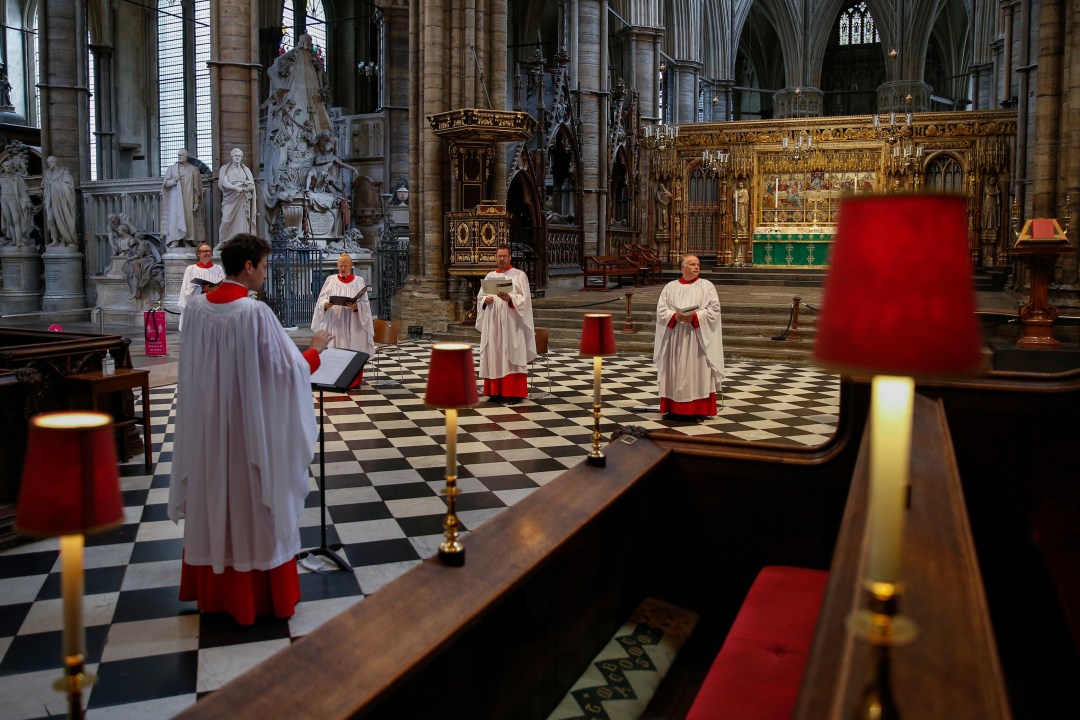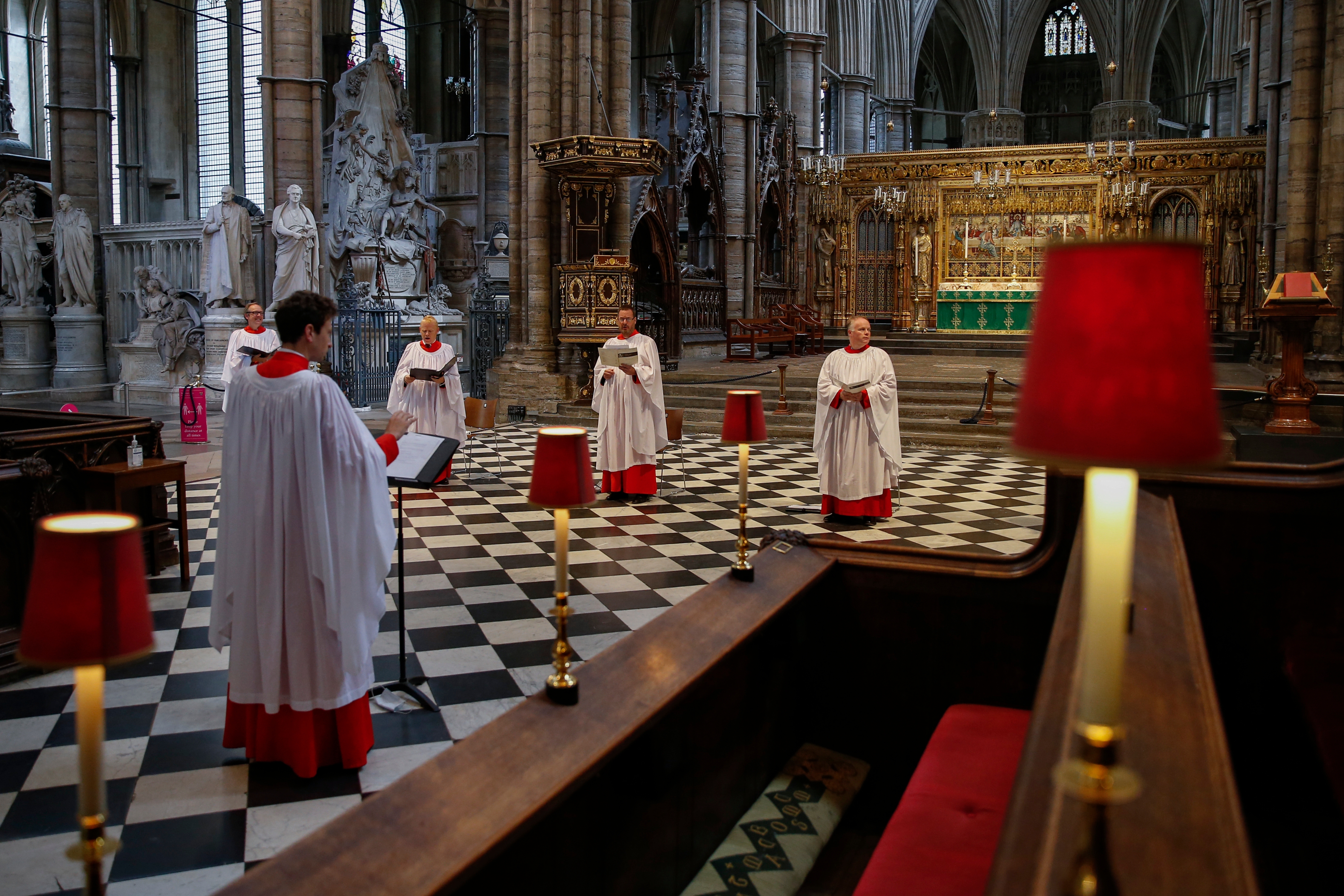Not all coronavirus research sounds like fun, but wouldn’t you just loved to have been at the session where 25 choristers were asked to sing Happy Birthday at varying volumes to determine whether or not it would be safe for choirs to get back to business. The exercise was carried out by academics collaborating with Public Health England (while it lasted) and the Department for Culture. And you know what? It turns out that the quieter the singing, the lower the risk of transmitting droplets.
The researchers found that singing did not produce much more aerosol than speaking at a similar volume, but singing or speaking loudly increased the production of droplets by a factor of between 20 and 30 compared with lower volumes. “Just by singing a little more softly you really reduce the risk. Singing itself doesn’t carry a disproportionate risk,” said Jonathan Reid, professor of physical chemistry at the University of Bristol.
Now the Church of England can come out of hiding and do its job
The upshot is that choirs can safely return to business in cathedrals, which have enormous spaces and room for quite a lot of social distancing (though managing to space out choristers in old fashioned choir stalls will challenge the choirmasters.)

Get Britain's best politics newsletters
Register to get The Spectator's insight and opinion straight to your inbox. You can then read two free articles each week.
Already a subscriber? Log in








Comments
Join the debate for just £1 a month
Be part of the conversation with other Spectator readers by getting your first three months for £3.
UNLOCK ACCESS Just £1 a monthAlready a subscriber? Log in